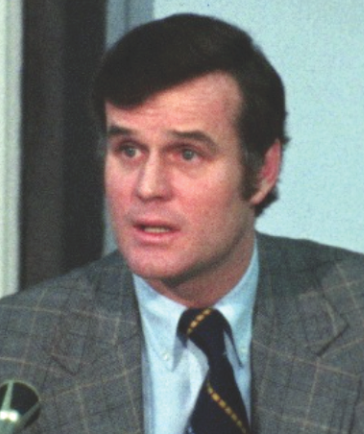January 3, 2018

By Lewis Finfer, Special to the Reporter
Joe Timilty, raised in Dorchester, was almost elected Mayor of Boston in 1975 and served as a city councillor and state senator. He died at home from cancer on Dec. 22 at age 79.
The 1975 mayor’s race between incumbent mayor Kevin White and Senator Joe Timilty was impacted by two key issues. There was a growing sense that Mayor White had shifted from a “neighborhood mayor” to more of a “downtown” development mayor in the course of his first term.
White also had presidential ambitions and cultivated them by sponsoring events with various power brokers at the city-owned Parkman House on Beacon Street.
The second was court-ordered desegregation or busing which heightened racial conflicts with terrible violence that shaped our feelings about Boston then and now. There was also a class undertow to it as white working class people in Boston opposed having their children bused. They resented those in the wealthier, suburban establishment who lectured them to comply but were not impacted by the busing order that only covered the neighborhoods of Boston.
The mayoral race was very close and a deciding factor may have been a press conference held shortly before the election where the then-popular Boston Police Commissioner Robert diGrazia claimed that there were policemen who had lost standing who were involved in Timilty’s campaign.
He implied that police department reforms he had made would be ended if Timilty were elected. Years later in an interview for the book Rogues and Redeemers: When Politics was King in Irish Boston, by former Boston Globe reporter Gerald O’Neill, diGrazia said he relied on information from another police official that may not have been true. Asked if it was fair, he said, “In retrospect, probably not.....he fell in line” with City Hall...”I think what happened was they knew that if I said something, people trusted me. And so, yeah, I was foolish to trust them.” White, who had to keep order during the great turmoil during the desegregation crisis, was under from many white working class people. Joe Timilty could have exploited this as a candidate. But he chose not to and that’s a praiseworthy decision.
Both he and Mayor White said they opposed the court decision. But Timilty made no promise to overturn the decision which would have been politically popular but not possible with a federal court order.
Another side of Timilty’s career was that Tom Menino was a long time aide to Senator Timilty. I remember Menino as his aide at his desk in a crowded State Senate office. That experience and the relationships he made in those campaigns for TImilty led to him running for City Council in 1983 which launched his career that led to his two decades as Mayor.
I learned an early lesson about political power from Joe Timilty. In 1972, I was in a meeting with neighborhood leaders about the impact the new UMass Boston campus might have on rents in Dorchester.
After I said something about this, Timilty said, “Who are you, who are you?” He was more than implying that our Dorchester Tenants Action Council group did not yet have any political weight.
The next year I decided that to be more representative of Dorchester’s people and issues, we had to take on other issues in addition to tenants’ rights. We also changed our name to Dorchester Community Action Council. We tackled issues like getting the then-large numbers of abandoned buildings in Dorchester torn down which had grown out of the blockbusting and redlining of the Boston Banks Urban Renewal Group’s mortgage program. We found a way through the mass filing of tax abatements to win reduced property taxes first for hundreds and over 4 years for thousands of Dorchester homeowners.
During the 1975 Mayoral campaign our Dorchester Community Action Council organized a debate between Mayor Kevin White and Senator Timilty. White didn’t attend but sent his Assessing Commissioner Robert Ryan to represent him. About 400 of our members filled St. Ambrose Hall in Fields Corner that night. Senator Timilty did well in the debate.
He had challenged me and I learned first-hand that there is power in organized numbers of people. His life took a sour turn when he was indicted and convicted for his role in the financing of an East Boston condominium development. He ended up in a federal penitentiary because he considered the charges to be unjust and refused to testify against another associate.
There was a silver-lining from this low-point in his life: Joe Timilty later published a prison journal that was a revealing look into the experience.
Later, working as a lobbyist work at the State House, he put in free time helping groups focused on criminal justice reform. I appreciated his graciousness and interest in helping in recent years when we were working on that issue. He was quick to call back, offer advice, and say what politicians he could speak to about this. He will be remembered.
Lew Finfer is a Dorchester resident and co-director of Massachusetts Communities Action Network.

